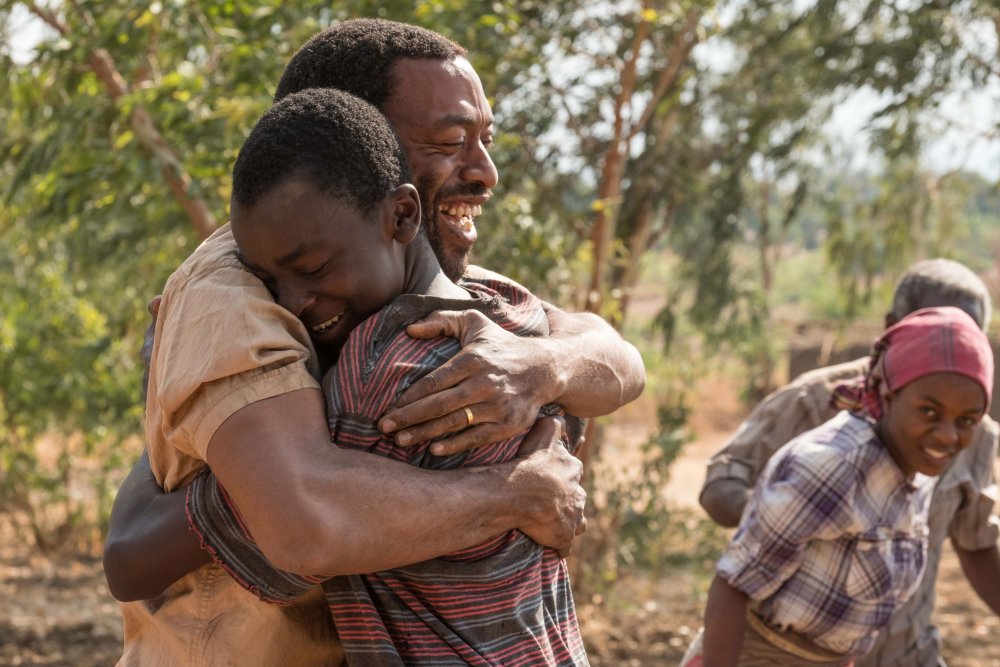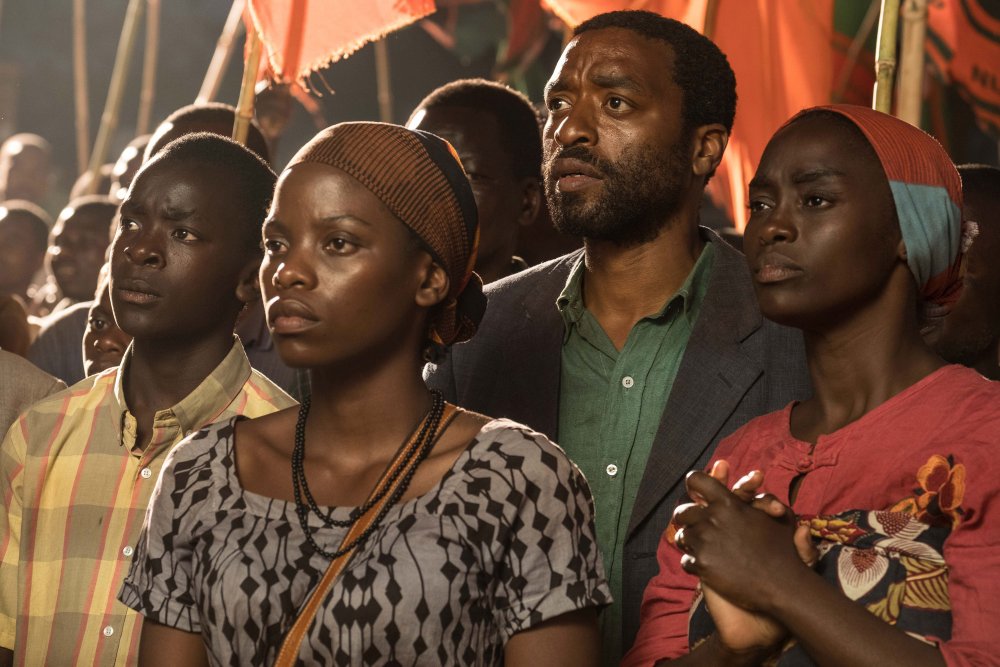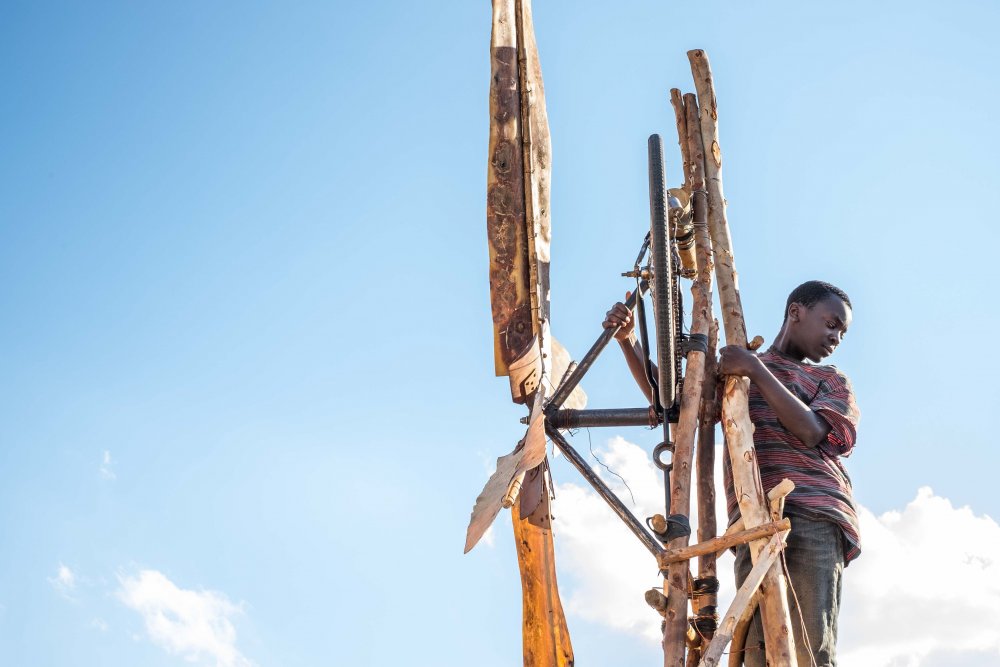The Boy Who Harnessed The Wind is made with an authenticity that often escapes this kind of adaptation. The film is written and directed by Chiwetel Ejiofor and adapted from a book by the boy of the title, William Kamkwamba (played by newcomer Maxwell Simba), about his time living in Malawi in the 2000s.
UK 2018
113 mins
Director Chiwetel Ejiofor
Cast
Trywell Kamkwamba Chiwetel Ejiofor
William Kamkwamba Maxwell Simba
Annie Lily Banda
Edith Sikelo Noma Dumezweni
Agnes Kamkwamba Aïssa Maïga
International releasse date 1 March 2019
Distributor Netflix
► Trailer
The film hits the ground running, but doesn’t leave the characters behind just to service plot. William’s family is struggling. A drought has struck and land is being sold off to a tobacco company as people abandon hope that the government will help them. The film’s conflict is between people and nature, as well as the pride of men, with Western influence only exacerbating the problem. The drought was coming anyway, but things are made worse by the tobacco company and a lack of aid from a capitalist government that’s more concerned with slogans than solutions.
William’s father Trywell (Ejiofor) is fascinating, torn between pride and necessity and stubbornly refusing to sell what little land his father trusted him with, despite the looming threat of famine. He might be the film’s most clearly defined character, to the point that he draws some attention away from William, but the film is no less effective for it – theirs is the most crucial relationship. There’s a lot of detail and warmth in the portrayal of the family, and while Ejiofor is the most recognisable face here, his naturalistic presence lets him fit right in.

Chiwetel Ejiofor as Trywell Kamkwamba with Maxwell Simba
The narrative is punctuated with darkly ironic chapter titles, such as “growing”, announcing a period of intense drought. They suggest that things aren’t so much wrong with the country as they lacking balance, a semblance of which William helps to restore through his ingenuity. This is a refreshing perspective considering how many ‘woe is Africa’ stories there are out there.
Perhaps the most striking aspect of the film is just how much care has gone into defining the village in which it’s set. It’s shot with a matter-of-factness that eschews Western views of the continent, and barely even pauses to explain tradition – like the presence of the extravagantly costumed Gule Wamkulu, whose appearances bookend the film, memorialising the dead with a joyous dance.

Simba, Lily Banda as Annie, Ejiofor and Aïssa Maïga as Agnes Kamkwamba
The majority of the film’s dialogue is in Chichewa, with English only serving as a bridge between tribes as opposed to a bridge for the audience. It doesn’t patronise or lay out the specifics of Malawi’s political climate too bluntly; we find out about the government, the encroaching tobacco company and the threat of drought along with the characters.
As a result the film feels lived-in in a way that not many biopics do, forgoing both the gloss and poverty porn that often comes with Western films about Africa. While the village gets increasingly desperate as people begin to starve, the film never overplays its hand and keeps its focus on the emotional arc of William earning his father’s trust. It may be yet another ‘based on a true story’ film, but The Boy Who Harnessed The Wind takes full advantage of its unfamiliar perspective.
-
The Digital Edition and Archive quick link
Log in here to your digital edition and archive subscription, take a look at the packages on offer and buy a subscription.








